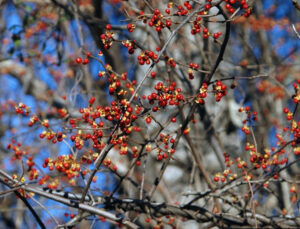
The berries of round leaf bittersweet (Celastrus orbiculatus) grow in clusters at each leaf axil and are beautiful, but this highly invasive plant makes it unsuitable for use in your fall decorations. / Photo Credit: Chris Evans, University of Illinois, Bugwood.org
By Wisconsin DNR
With the holiday season drawing near, it’s time for the Wisconsin Department of Natural Resources (DNR) to remind home crafters to be wary of using invasive plants in fall and winter decorations.
While holiday decorations made from natural materials can be beautiful, some wreaths and other home decorations may contain invasive species.
A quick Google or Pinterest search for décor ideas brings up a slew of orange-tinged images: pumpkins, leaves, pinecones and pretty fall foliage — sometimes boasting small, red-orange berries. While you can safely cloak your home in most of these items, avoid the one with the red-orange berries, as it likely comes from the non-native, woody vine called round leaf bittersweet (Celastrus orbiculatus, previously known as Oriental bittersweet).
Continue reading “Beware Of Invasive Plants In Your Holiday Décor” →
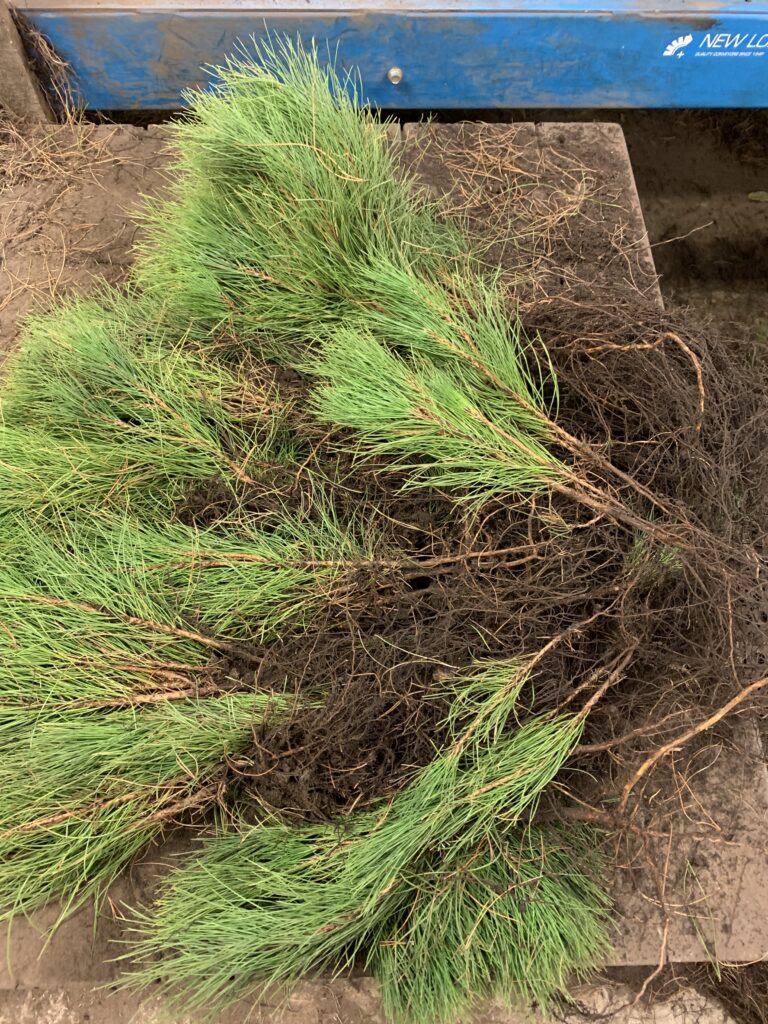 The Wisconsin Department of Natural Resources (DNR) is offering free tree seedlings to every fourth-grade student in Wisconsin as part of its annual Arbor Day tree planting program.
The Wisconsin Department of Natural Resources (DNR) is offering free tree seedlings to every fourth-grade student in Wisconsin as part of its annual Arbor Day tree planting program.
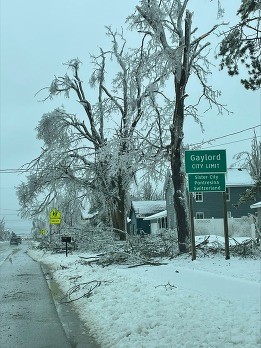
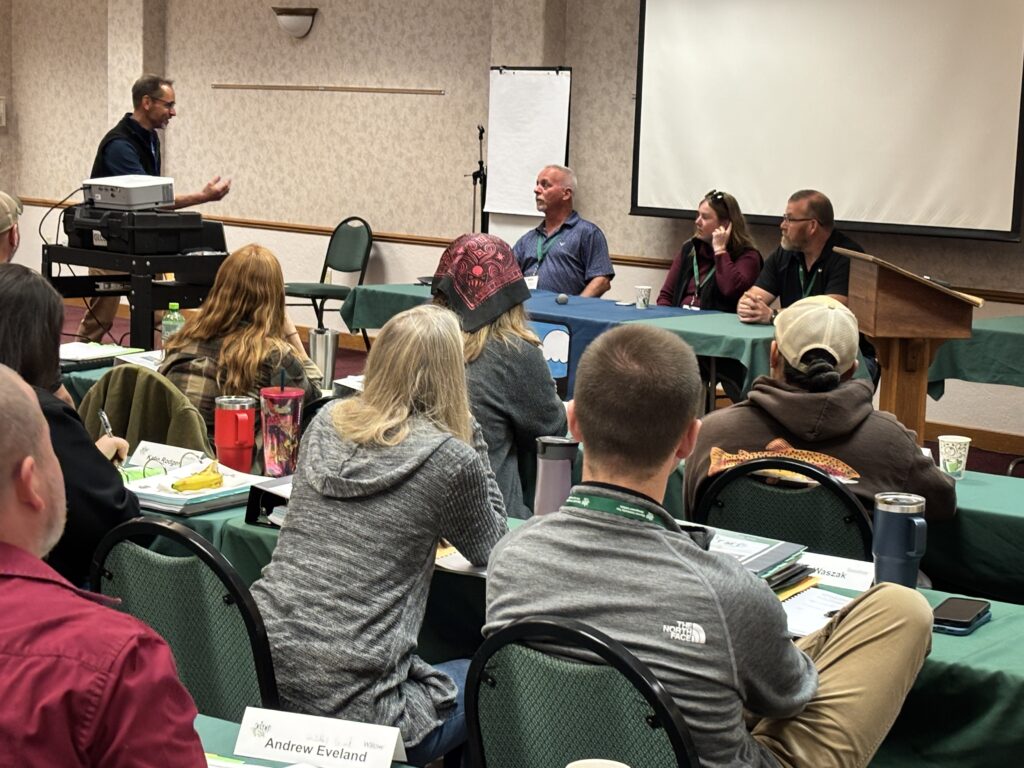 *These training opportunities are provided as an information service only and do not constitute an endorsement from the Wisconsin Department of Natural Resources (DNR).
*These training opportunities are provided as an information service only and do not constitute an endorsement from the Wisconsin Department of Natural Resources (DNR).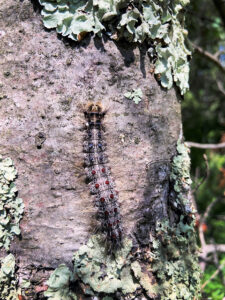

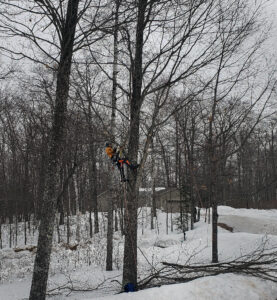
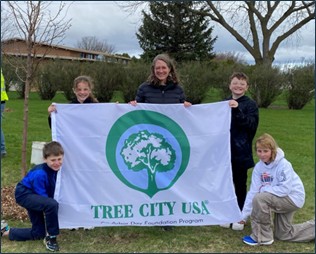 The online portal for Tree City USA (TCUSA) is
The online portal for Tree City USA (TCUSA) is 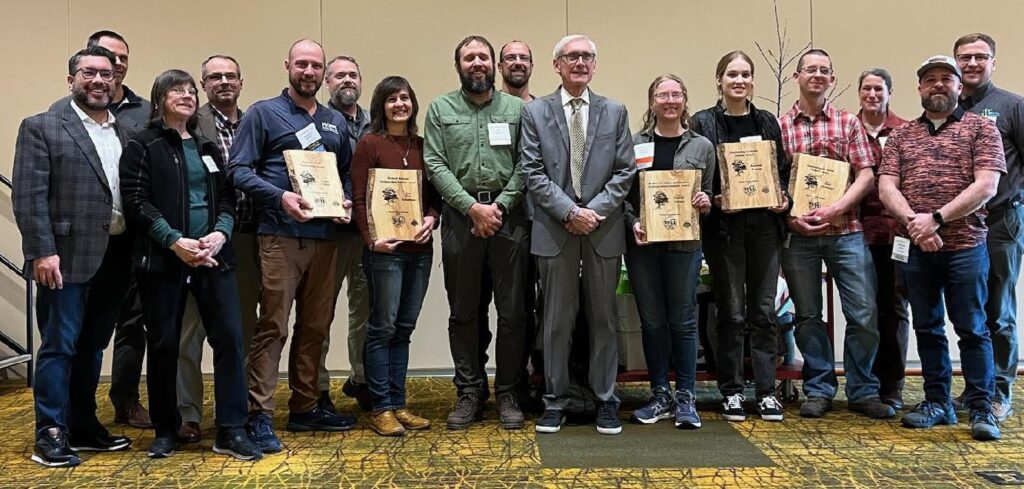 Do you know of a person or organization that is making a difference in community forestry? Maybe it is a volunteer who spends their free time planting trees in the community or an organization that is committed to increasing tree diversity or a municipal employee who has dedicated their career to transforming a city’s urban forestry program. If so, please complete this short
Do you know of a person or organization that is making a difference in community forestry? Maybe it is a volunteer who spends their free time planting trees in the community or an organization that is committed to increasing tree diversity or a municipal employee who has dedicated their career to transforming a city’s urban forestry program. If so, please complete this short 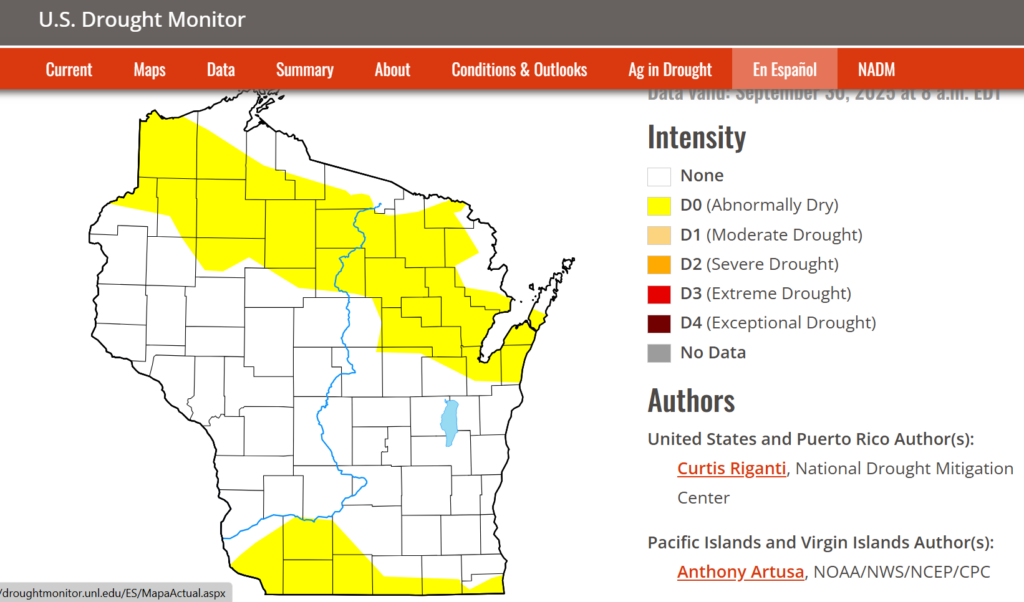
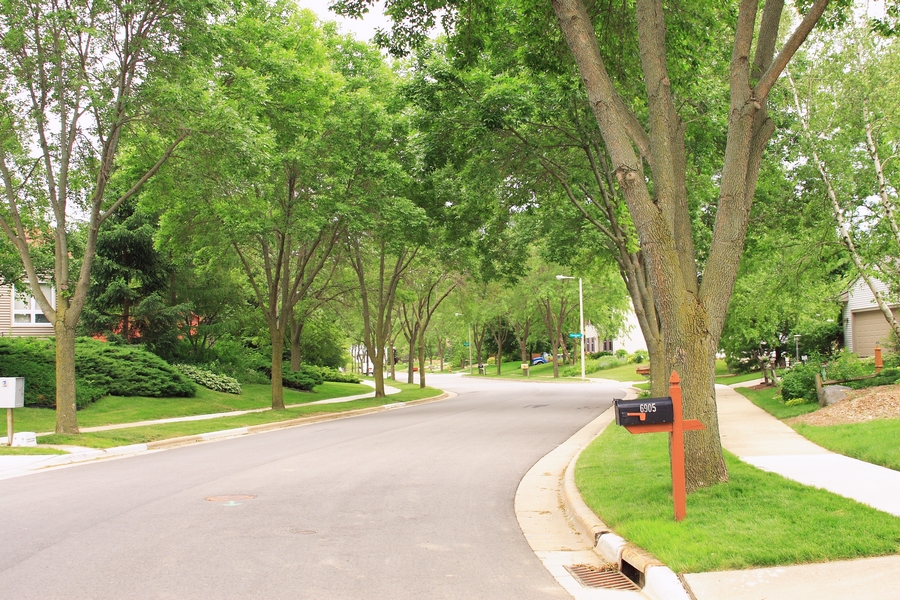 Are you responsible for tree care in your community? If so, please complete this
Are you responsible for tree care in your community? If so, please complete this